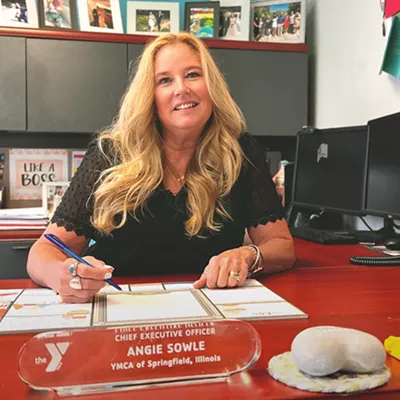New research fuels a call to strengthen childhood programs
By ReadyNation/America’s Edge
Investments in early care and education for children provides an impressive and nearly immediate business boost for local communities throughout Illinois, with potential to generate thousands more jobs and more than $1 billion in new economic activity, a group of business leaders said in April.
Every public dollar that Illinois invests in early childhood programs generates a total of $1.94 in business activity, according to new research released by ReadyNation/America’s Edge. That “multiplier effect” outpaces even the robust boost seen in eight out of nine other major business sectors studied, such as retail trade ($1.93), transportation ($1.91) and manufacturing ($1.79).
“From bolstering local sales to supporting existing jobs and creating new positions, early learning investments clearly pay off for local businesses, communities and their economies in ways that are often overlooked,” said Sara Watson. Watson is the national director of ReadyNation/America’s Edge, a group of business leaders numbering 1,000 nationwide and more than 100 in Illinois, several of whom participated in the group’s report.
“Our increasingly global marketplace calls on us to do everything we can to sharpen our competitive edge. Solid early learning programs represent one of our best opportunities to rise to the challenge,” said B. Bradford Billings, president and CEO of the Quincy-based Blessing Health System.
“Any worthwhile construction project begins with a strong foundation. And that’s what preschool and child care represent – the opportunity to help kids off to the absolute best start in life,” added Tom Fitch, vice president of the Harold O’Shea Builders firm in Springfield and chairman of the Greater Springfield Chamber of Commerce.
Currently, Illinois’ early learning investments are responsible for about 36,000 jobs. But ReadyNation/America’s Edge research shows that, for every 20 jobs created within the early learning field, five new jobs are generated beyond it.
With greater investments in the learning and development of disadvantaged young children who now lack such help, Illinois could add at least 19,000 more jobs – including 4,000 new positions in sectors beyond child care and preschool classrooms, the new report shows.
“As a city mayor, I care deeply about creating and sustaining jobs, as well as developing economic opportunity in my community,” said Collinsville Mayor John Miller. “Ensuring that my residents’ young children have good preschool and child care options is a critical piece of this puzzle.”
In addition, the new report shows that extending early learning access to more disadvantaged kids could generate at least $1.2 billion in new business activity for Illinois – dollars that would remain within the state. The ReadyNation/America’s Edge research lays out projected new spending in such business sectors as real estate and construction, insurance and finance, and retail and wholesale trade.
Illinois’ $1.94 “multiplier” figure for early learning investments measures a near-immediate boost in business, reflecting two types of economic activity: First, the direct investment of each dollar spent on early care and education programs through such avenues as teacher and staff wages. Second, the generation of 94 cents of additional activity when these workers spend their pay on local goods and services, as well as when early learning centers purchase local goods and services.
“What’s startling to me, as a business leader, is that the flip side of the ‘multiplier’ argument is also true,” said Lisa Savegnago, president of Nameplate and Panel Technology of Carol Stream. “When policymakers cut back on early childhood investments, they actually pull money from circulation in local communities and economies.”
For example, Illinois businesses are losing about $155 million in annual sales and activity – nearly half of it outside the early learning sector – as a result of recent Early Childhood Block Grant (ECBG) cuts that have pushed 25,000 young children from preschool classrooms statewide.
The business leaders of ReadyNation/America’s Edge urge state policymakers to improve Illinois’ economy by strengthening investments in early learning priorities, such as restoring the most recent $25 million cut in preschool and birth-to-3 programs supported by the ECBG. This reflects recent budget recommendations from the Illinois State Board of Education and Gov. Pat Quinn.
According to ReadyNation/America’s Edge, from 2009 to 2013, state budget cuts erased nearly 570 preschool slots in Sangamon County, alone – each slot representing a youngster losing pre-kindergarten services that he or she needed to enter school prepared for success. Sangamon’s 29.4 percent rate of preschool cuts outpaced the statewide figure of about 26 percent.
Altogether in Sangamon County, there are still more than 1,300 children, 3 or 4 years old, who lack early learning services from which they could benefit enormously, and which their parents cannot easily afford or access.
As legislators settle on a final state budget for FY2015, they need to prioritize protecting early care and education from further cuts, these business leaders assert.
In addition to the short-term gains reflected in the ReadyNation/America’s Edge report, early learning programs provide significant long-term benefits for both children and the economy.
Years of well-documented research have demonstrated that high-quality early education programs increase kids’ chances of graduating high school on time, attending college and securing good jobs. Such programs average more than $22,000 in net economic benefits, after accounting for their costs, for each child served. Early learning investments also help to develop a stronger workforce and shrink the so-called “skills gap” between job candidates’ abilities and employers’ expectations.
The ReadyNation/America’s Edge projections of possible future economic benefits are based on conservative estimates of the effects of increasing state investment in voluntary preschool and child care programs.
The full report “Strengthening Illinois Businesses through Investments in Early Care and Education” is available at http://tinyurl.com/RNAE-research. ReadyNation/America’s Edge is a national, nonprofit, nonpartisan organization of business leaders whose members work to strengthen businesses and the economy through research-proven investments in children and youth.


















